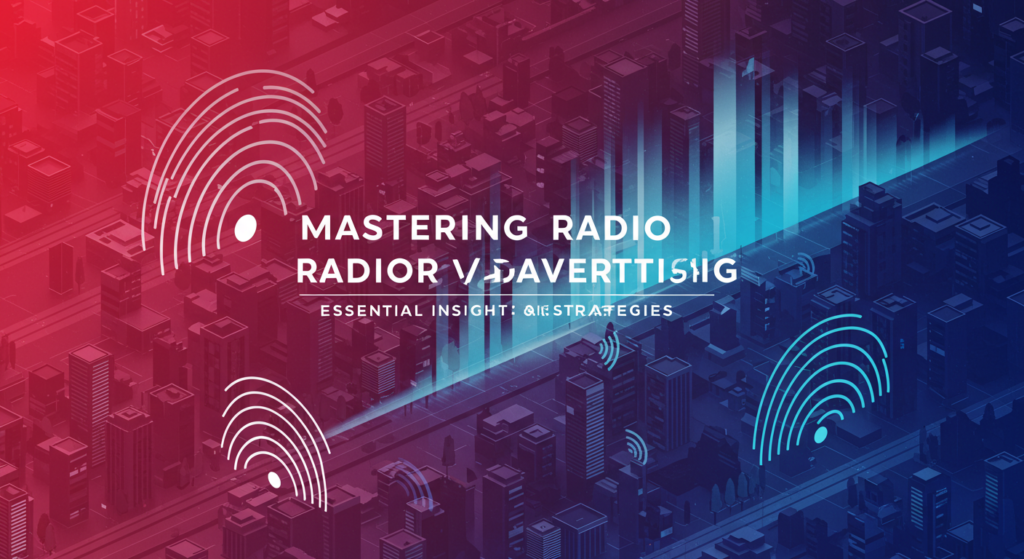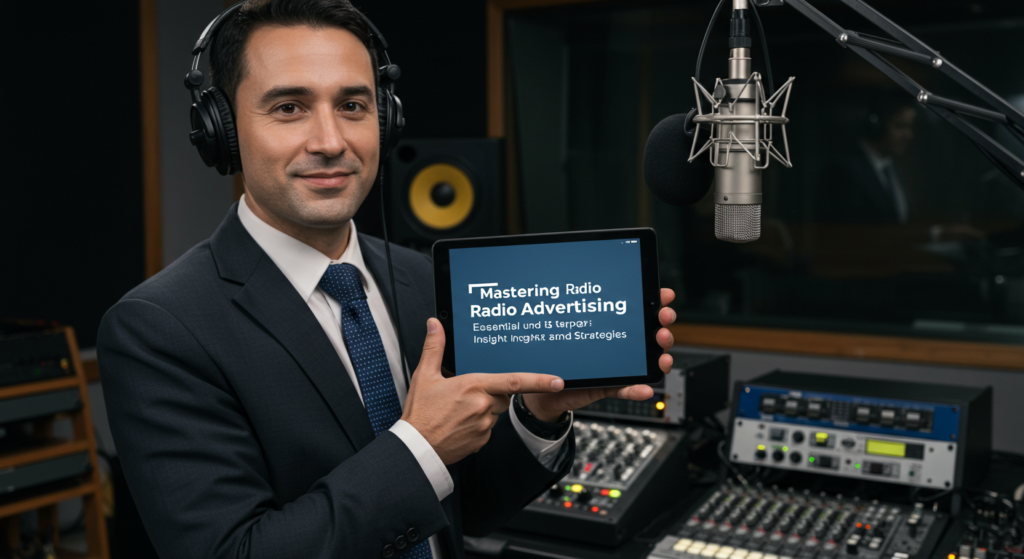Why Radio Advertising Still Matters in Nigeria

Radio is still king in Nigeria’s media landscape. While social media and TV have their place, radio reaches more ears more often—especially in cities like Lagos. From buses to offices, kiosks to kitchens, FM stations are a daily companion for millions.
Radio advertising offers something many digital channels don’t: hyper-local reach, cultural relevance, and language-specific messaging. For Nigerian brands looking to stay top-of-mind, this traditional channel is still a strategic asset.
What Is Radio Advertising?
Radio advertising involves placing paid promotional content on FM or AM radio stations to promote products, services, or events. In Nigeria, these ads are broadcast on popular stations and are available in English, Pidgin, Yoruba, Hausa, Igbo, and other local dialects.
Common formats include:
- Jingles: Short, catchy musical ads
- Live Reads: Presenters read your script live on air
- Sponsored Segments: You sponsor a program or segment
- Sweepers: Very short brand mentions between programs
Each format serves a purpose, from brand awareness to direct call-to-action.
Why Radio Advertising Still Works in Nigeria
Here’s why Nigerian radio ads are still effective:
- 78% of Nigerians listen to the radio weekly (NBS, 2024)
- It doesn’t require internet or electricity—it’s everywhere
- You can target by region, language, and station style
- Production is fast and affordable compared to TV
- Great for mass-market or regional campaigns
In Lagos, where people spend hours in traffic daily, FM radio provides uninterrupted access to audiences during key decision-making times.
Popular Radio Stations in Lagos and Their Audience Profiles
Knowing your station matters. Here are a few examples:
- Wazobia FM: Pidgin English, mass-market appeal
- Cool FM: Urban, youthful, music-heavy
- Inspiration FM: Mature, inspirational, middle-class
- Nigeria Info FM: News, talk, politics, educated listeners
- Beat FM: Pop culture, music lovers, younger demographic
Your radio marketing in Lagos should match the station’s tone and the audience it speaks to.
Radio Advertising Formats and Strategic Timing

Radio airtime slots have different values depending on the time of day:
- Morning Drive (6 AM – 10 AM): High traffic, peak listenership
- Midday (10 AM – 3 PM): Office and market listeners
- Evening Drive (3 PM – 7 PM): Returning commuters
- Late Night (8 PM – 12 AM): Niche audiences, lower cost
Pair the time with the right ad format:
- Jingles during high repetition slots
- Live Reads during drive-time for credibility
- Sponsored shows for deeper engagement
Language matters too. Match the ad tone to the region: Yoruba for Ibadan, Igbo for Enugu, Hausa for Kano, etc.
Crafting an Effective Radio Ad
Radio gives you 15 to 60 seconds. Make every word count.
Tips:
- Keep it under 40 words for short ads
- Use repetition for brand recall
- Choose a voice that fits your audience—male, female, young, mature
- End with a clear CTA: “Visit us today,” “Call now,” “Order with this code”
A great Nigerian radio ad is conversational, rhythmic, and emotionally resonant.
Common Mistakes in Nigerian Radio Advertising
- Choosing the wrong station for your audience
- Running ads at low-listenership hours to save money
- Using boring, generic scripts that people tune out
- Not including a clear call-to-action
- Forgetting to pair radio with a trackable response method
Radio works—but only when it’s planned with intent.
Real Campaign Examples That Worked
- A Lagos-based detergent brand used 15-second jingles on Wazobia FM. The rhythmic repetition and local slang increased retail demand by 18% in three months.
- A fintech app partnered with Nigeria Info FM for a 5-minute live-read series during morning traffic. They saw a 42% spike in app installs after just 10 days.
- A local eatery sponsored a midday request show on Cool FM, offering giveaways for callers. Engagement doubled within a week.
Measuring ROI from Radio Advertising
Unlike digital, radio isn’t clickable. But you can still track impact:
- Use promo codes only mentioned in the ad
- Direct listeners to a specific landing page
- Track store traffic or phone inquiries during campaign windows
- Pair with social media or SMS for deeper tracking
Results may vary by industry, but radio lifts awareness and supports conversion when used right.
When Radio Ads Work Best—and When to Skip Them
Use radio when:
- You need mass awareness quickly
- Your target audience is regional or multilingual
- You have a time-sensitive promo or event
- You want brand credibility via presenter endorsements
Skip radio when:
- Your product needs lots of visual explanation
- Your audience is exclusively digital or Gen Z
- Your budget doesn’t allow for consistent repetition
Final Word: Let’s Put Your Brand on Air
Radio advertising in Nigeria is far from outdated. It’s powerful, affordable, and rooted in the local culture. But like any medium, it requires strategy.
At Xpark360, we help brands craft high-impact radio campaigns—from script to station selection, voiceover to airtime placement. Whether it’s a catchy jingle or a smart partnership with Lagos’ top radio shows, we know how to make your message stick.
🎙️ Book a free radio strategy session with Xpark360. Let’s take your brand on air, the right way.
